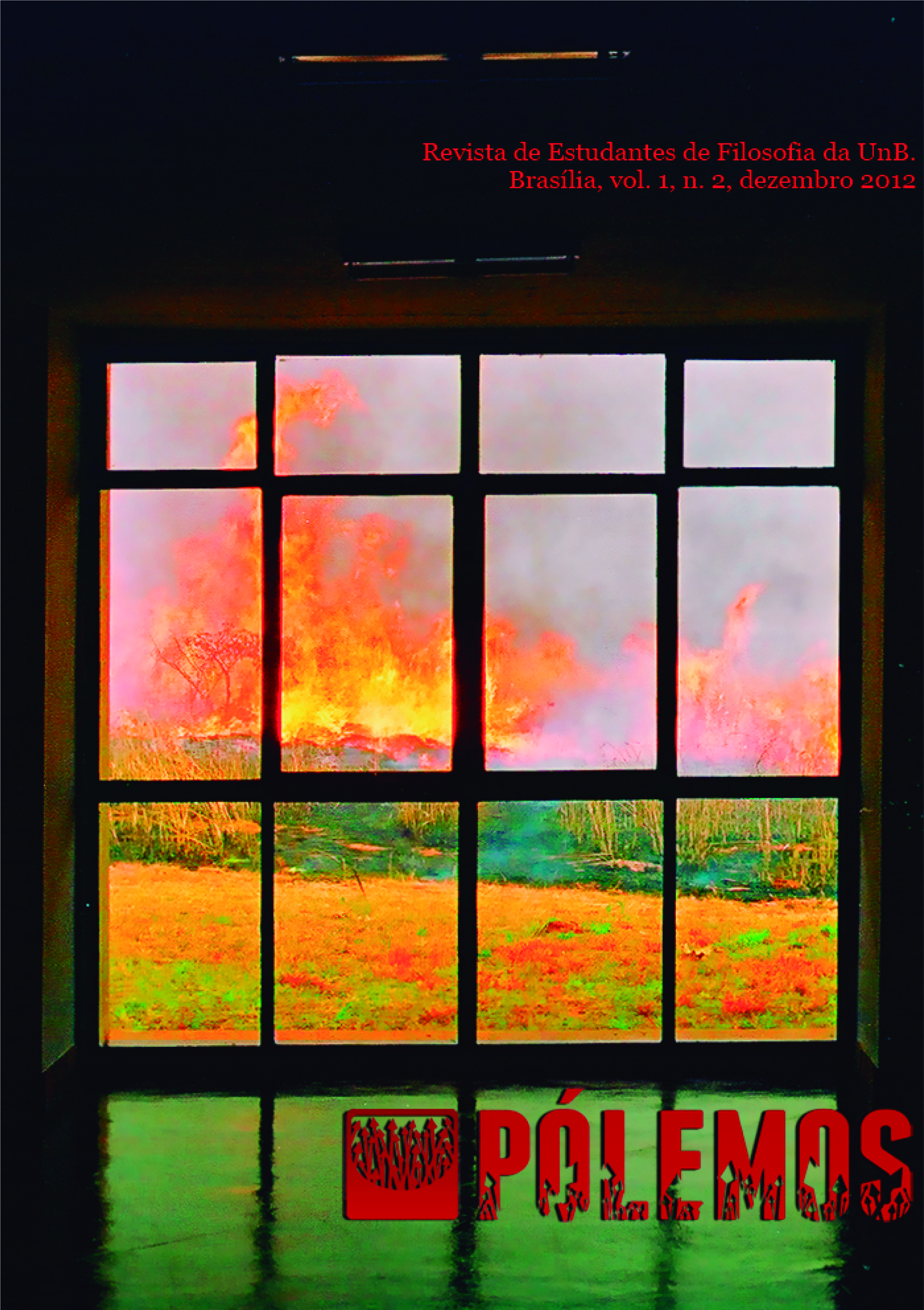EDUCATION, MORALITY AND CITIZENSHIP IN THE PRACTICAL PHILOSOPHY OF IMMANUEL KANT
a study from the work Über Pädagogik
DOI:
https://doi.org/10.26512/pl.v1i2.11525Keywords:
Pratical Philosophy. Education. Citizenship. Kant.Abstract
The scope of this paper is to rescue the educational principles of practical philosophy teacher of Königsberg , Immanuel Kant. For this, we have as a theme for reflection: the relationship of theory of education with moral and political education of the student. The objectives of this paper are: the reconstruction of the principles and foundations of pedagogy as an integral component of Kant‘s practical philosophy, the analysis of the pedagogical practices of discipline, instruction and moral education for the formation of character, examining the connection between moral education and the formation of citizenship in the student as the final end (letzter Zweck) of pedagogic practice. The preparation of this article had as to research criteria: the relevance of Kant's reflections on education, the consistency between theory and practice of pedagogical theory, especially with regard to the proposed educational training of individuals who act in a politically and morally autonomous. Moreover, the theoretical assumptions of Kant's critical philosophy can contribute to understanding and solving current dilemmas of educational practice.Downloads
References
ADORNO, Theodor. W. 1995. Educação e Emancipação. Tradução de Wolfgang Leo Maar. Rio de Janeiro, Paz e Terra.
ARAMAYO, Roberto Rodriguez. 1994. Estudio Preliminar: El ”•Utopismo ucrónico de la reflexion kantiana sobre la historia. In:
KANT, Immanuel. Ideas para una historia universal en clave cosmopolita y otros escritos sobre Filosofía de la Historia.Madrid: Tecnos,p. IX-XL.
AREDES, José de Almeida Pereira. 2006. Ensinar Kant. In: SANTOS, Leonel Ribeiro dos (Coord.). Kant: posteridade e actualidade. Lisboa: CFUL, p. 781-788.
CAFFARENA, José Gómez. 1996. La conexión de la política com la ética. (¿Logrará la paloma guiar la serpiente?). In:
RODRÃGUEZ ARAMAYO, Roberto; MUGUERZA, J.; RONDÁN, C. (org.) La Paz y el Ideal Cosmopolita de la Ilustración. A Propósito del Bicentenario de Hacia La Paz Perpetua de Kant. Madrid: Tecnos, p. 65-75.
CASSIRER, Ernst. 1970. Rousseau, Kant and Goethe: two essays. Princeton: Princeton University Press.
CONDORCET. 2008. Cinco memórias sobre a instrução pública. São Paulo: EDUNESP, 264 p.
DALBOSCO, Claudio Almir. 2004. Da Pressão disciplinada à obrigação moral: Esboço sobre o significado e o papel da pedagogia no pensamento de Kant. Educação e Sociedade, Campinas, n. 89, p.1333-1356.
FREITAG, Bárbara. 2004. Itinerários de Antígona: A questão da moralidade. São Paulo: Papirus, 308 p.
______. 1989. A questão da moralidade: da razão prática de Kant à ética discursiva de Habermas. Tempo social: Revista de sociologia da USP. São Paulo 1(2), p. 7-44.
JAERGER, Werner. 1995. Paideia: a formação do homem grego. São Paulo: Martins Fontes, 1413 p.
______. 1944. Paideia: the ideals of Greek Culture. Volume III: The conflict of cultural ideals in the Age of Plato. Traduçãode Gilbert Highet. Oxford: Okford University Press, 376 p.
KANT, Immanuel. 2006. Antropologia de um ponto de vista pragmático. Tradução de Clélia Aparecida Martins. São Paulo:Iluminuras.
______. 1992. Lógica. Tradução de Guido Antônio de Almeida. Rio de Janeiro: Tempo Brasileiro.
______. s/a. Resposta à pergunta: O que é Iluminismo? In: ______. A paz perpétua e outros opúsculos. Tradução de Artur Morão. Lisboa: Edições 70, p. 11-19.
______. 1996.Sobre a Pedagogia. Tradução: Francisco Cock Fontanella. Piracicaba: Editora Unimep.
______. 1977. Über Pädagogik. In: ______. Schriften zur Antropologie, Geschichts-philosophie, Politik und Pädagogik 2. Frankfurt am Main, p. 691-761.
______. 1900. Kant on Education(Ueber Padagogik). Traduçãode Annette Churton. Boston: D. C.HEATH ,& CO., PUBLISHERS, 121 p.
______. 1904. Educational theory. Traduçãoeed. com uma introdução deE.F. Buchner. Philadelphia: Lippincott.
______. 1974. Fundamentação dametafísica dos costumes. Tradução de Paulo Quintela. São Paulo: AbrilCultural.
______. 1886. Traité de Pédagogie. Paris: Félix Alcan, 133 p.
______. 1927. La Pedagogia. Traduçãode Angelo Valdarnini.Torino: G.B. Paravia & C.
______. 2008. A paz perpétua. Tradução de Marcos Zingano. Porto Alegre: L&PM.
______. 1994. Ideas para una historia universal en clave cosmopolita y otros escritos sobre Filosofía de la Historia. Madrid: Tecnos.
LA TAILLE, Yves de. 1996. A educação moral: Kant e Piaget. In: MACEDO, Lino de (Org.). Cinco estudos de educação moral. São Paulo: Casa do Psicólogo, p. 137-178.
________ 1992. Desenvolvimento do juízo moral e afetividade na teoria de Jean Piaget. In: LA TAILLE, Yves de; OLIVEIRA, Marta Kohl; DANTAS, Heloisa. Piaget, Vygotsky,Wallon: teorias psicogenéticas emdiscussão. São Paulo: Summus.
LOUDEN, Robert B. 2000. Kant’s impure ethics: from rational beings to human beings. New York, Oxford: Oxford University Press.
MUNZEL, Gisela Felicitas. 2001. Antropology and the Pedagogical Function of the Critical Philosophy. In: GERHARDT, Volker; HORSTMANN, Rolf-Peter; SCHUMACHER, Ralph. 2001. Kant und die Berliner Aufklärug: Akten des IX. Internationalen Kant-Kongress. Berlin/New York: Walter de Gruyter, p. 395-404.
PHILONENKO, Alexis. 1982. Études Kantiennes. Paris: J. Vrin.PINTO, Maria José Vaz. Ideia de Educação em Kant. 2006. In: SANTOS, Leonel Ribeiro dos (Coord.). Kant: posteridade e actualidade. Lisboa: CFUL, p. 421-432.
PINZANI, Alessandro. Il citadino autonomo tra educazione ed emancipazione. 2004. In: MONETI, Maria e PINZANI, Alessandro. Dirito, politica e moralitá in Kant. Milano: Bruno Mordadori, p. 129-137.
RAWLS, John. 2005. História da filosofia moral. São Paulo:Martins Fontes, 439 p.
SALGADO, Joaquim Carlos. 1986. A ideia de Justiça em Kant: seu fundamento na liberdade e na igualdade. Belo Horizonte: EDUFMG.
SBRIZ, Sara. 2002. Kant e a comunicazionedidatticadellafilosofía. Comunicazione Filosofica, n. 10, p. 21-49.
SUAREZ, Rosana. 2005. Nota sobre o conceito de Bildung (formação cultural).Kriterion, Belo Horizonte, v. 46, n. 112, p.191-198.
VINCENTI, Luc. 1994. Educação e Liberdade: Kant e Fichte. Tradução de Élcio Fernandes. São Paulo: EDUNESP.
Downloads
Published
How to Cite
Issue
Section
License
Copyright (c) 2016 Pólemos

This work is licensed under a Creative Commons Attribution-NonCommercial-NoDerivatives 4.0 International License.
Todos os trabalhos que forem aceitos para publicação, após o devido processo avaliativo, serão publicados sob uma licença Creative Commons, na modalidade Attribution-NonCommercial-NoDerivatives 4.0 International Public License (CC BY-NC-ND 4.0). Esta licença permite que qualquer pessoa copie e distribua a obra total e derivadas criadas a partir dela, desde que seja dado crédito (atribuição) ao autor / Ã autora / aos autores / às autoras.


